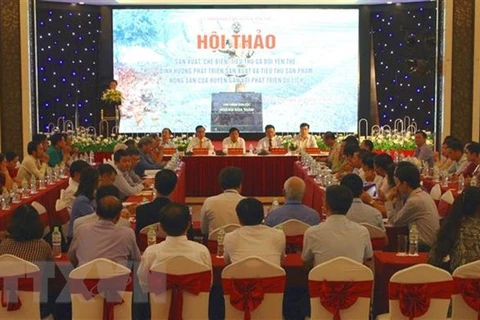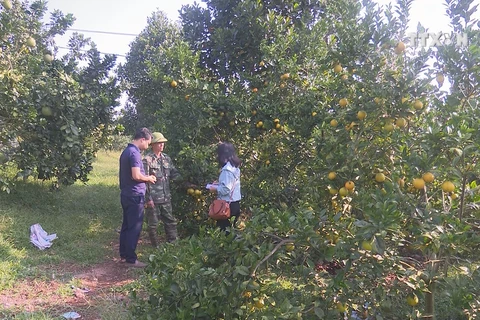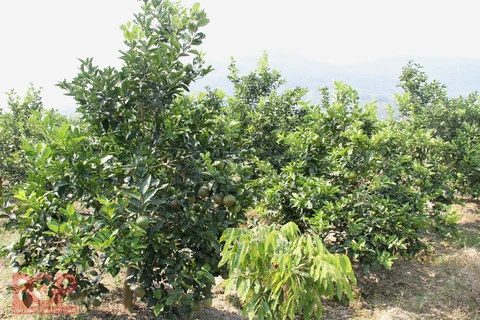Bac Giang (VNA) – With its potential and advantages in industrial development, the northern province of Bac Giang has been an attractive destination for investors, especially those in industrial sectors such as electronics, food processing, mechanics, chemicals, and construction material production.
Among the six existing industrial parks (IP) in the province, Quang Chau IP has drawn 18 projects, including two domestically-invested projects with combined capital of over 1.28 trillion VND (55.3 million USD), and 16 foreign-invested ones worth over 1.75 billion USD.
According to Nguyen Xuan Ngoc, Vice Director of the Management Board of Bac Giang Industrial Parks, so far, local IPs are housing 317 valid investment projects, including 94 domestically-invested projects worth 7.86 trillion VND (33.53 billion USD) and 223 FDI projects with total capital of over 3 billion USD. The IPs have created jobs for about 85,000 labourers.
Bac Giang is currently ranking sixth among 63 localities nationwide in investment attraction.
However, he pointed out that the greatest problem of the province is slow completion of infrastructure system in many industrial parks, along with poor performance of some departments, sectors and localities in investment promotion.
Many projects have faced difficulties during its implementation, especially in the process of ground clearance and compensation, he added.
Ngoc said that in order to create a clean land fund for investors and industrial development, in the future, the province will review the planning of existing IPs and develop new ones in the 2020-2030 period, making Bac Giang a locality with developed industrial sector.
Meanwhile, head of the Office for Management of Enterprises in IPs of Bac Giang Tran Van Thong said that to deal with difficulties and obstacles facing businesses and investors, the provincial Department of Natural Resources and Environment has proposed the province issue documents to address matters related to coordination among various sectors such as transportation, construction as well as localities, the IP Management Board and local enterprises.
In the first quarter of 2019, Bac Giang granted licences to 30 new projects, including 11 by domestic investors worth over 180 billion VND and 19 FDI projects with total capital of over 148 million USD.
Currently, Bac Giang is hosting investors from 12 countries and territories, mostly from Republic of Korea with 218 projects, and China with 95 projects and Japan with 22 projects.
Particularly, the locality has drawn eight projects in solar panel production, which is a promising sector of the province. Businesses in this field have headed to green production to protect the environment./.
VNA
























